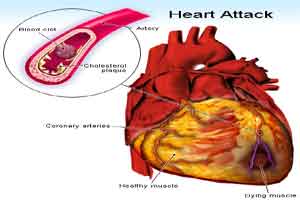- Home
- Editorial
- News
- Practice Guidelines
- Anesthesiology Guidelines
- Cancer Guidelines
- Cardiac Sciences Guidelines
- Critical Care Guidelines
- Dentistry Guidelines
- Dermatology Guidelines
- Diabetes and Endo Guidelines
- Diagnostics Guidelines
- ENT Guidelines
- Featured Practice Guidelines
- Gastroenterology Guidelines
- Geriatrics Guidelines
- Medicine Guidelines
- Nephrology Guidelines
- Neurosciences Guidelines
- Obs and Gynae Guidelines
- Ophthalmology Guidelines
- Orthopaedics Guidelines
- Paediatrics Guidelines
- Psychiatry Guidelines
- Pulmonology Guidelines
- Radiology Guidelines
- Surgery Guidelines
- Urology Guidelines
No need to treat non culprit vessel even in cardiogenic shock: TCT 2017

Patients with multivessel coronary artery disease and acute myocardial infarction with cardiogenic shock that underwent culprit lesion only percutaneous coronary intervention (PCI) had a lower 30-day risk of death or severe renal failure compared to those who had immediate multivessel PCI, said researchers presenting on CULPRIT-SHOCK at TCT 2017 in Denver.
The trial randomized 706 patients to either culprit lesion only PCI, with the option of staged revascularization, or immediate multivessel PCI. The primary efficacy endpoint was 30-day mortality or severe renal failure requiring renal replacement therapy. Safety endpoints included assessment of bleeding and stroke. Roughly half of enrolled patients had been resuscitated prior to randomization, 62 percent presented with STEMI, and 28 percent received some form of hemodynamic support.
Results, which were also published in the New England Journal of Medicine, showed the rate of the primary composite endpoint was significantly lower in patients assigned to culprit lesion only PCI compared to immediate multivessel PCI (45.9 percent vs. 55.4 percent). There was a significant difference between study groups with respect to all-cause mortality (43.3 percent vs. 51.5 percent), while the difference in the rates of renal replacement therapy was not statistically significant (11.6 percent vs. 16.4 percent). Additionally, researchers noted no significant differences in the time to hemodynamic stabilization, length of intensive care unit stay, or requirement for and duration of catecholamine therapy.
CULPRIT-SHOCK the largest randomized trial in cardiogenic shock, it is also the first randomized trial to assess a strategy of multivessel PCI versus culprit vessel only PCI with the option of staged revascularization in this patient population. Based on these 30-day results, culprit vessel only PCI reduces mortality or severe renal failure."
The rate of the primary composite endpoint was significantly lower in patients assigned to culprit lesion only PCI compared to immediate multivessel PCI (45.9% vs. 55.4%; RR 0.83; 95% CI 0.71-0.96; P=0.01). There was a significant difference between study groups with respect to all-cause mortality (43.3% vs. 51.5%; RR 0.84; 95% CI 0.72-0.98, P=0.03), while the difference in the rates of renal replacement therapy was not statistically significant (11.6% vs. 16.4%, RR 0.71; 95% CI 0.49-1.03, P=0.07). There were no significant differences in the time to hemodynamic stabilization, length of intensive care unit stay, or requirement for and duration of catecholamine therapy.
"Cardiogenic shock during myocardial infarction is a relatively rare, but extremely dangerous condition, in which the heart is unable to pump enough blood to meet the body's needs," said Holger Thiele, MD, Director of the Heart Center Leipzig - University Hospital in Leipzig, Germany. "Not only is CULPRIT-SHOCK the largest randomized trial in cardiogenic shock, it is also the first randomized trial to assess a strategy of multivessel PCI versus culprit vessel only PCI with the option of staged revascularization in this patient population. Based on these 30-day results, culprit vessel only PCI reduces mortality or severe renal failure."

Disclaimer: This site is primarily intended for healthcare professionals. Any content/information on this website does not replace the advice of medical and/or health professionals and should not be construed as medical/diagnostic advice/endorsement or prescription. Use of this site is subject to our terms of use, privacy policy, advertisement policy. © 2020 Minerva Medical Treatment Pvt Ltd